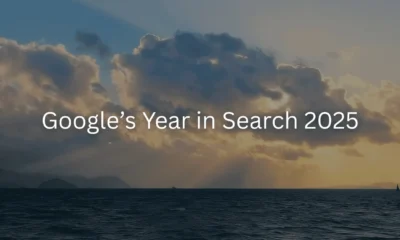Google’s New Pathways AI Is Closer to Mammalian Brain

Google announced a new AI architecture that powerfully expands Google’s AI computing ability in a profound way. The new AI architecture is is a single model that can be trained to do millions of things, which Google says is closer to a mammalian brain.
Google Pathways AI
The announcement by Google states that the current state of AI is to train a machine to do one thing very well, like to recognize images or understand the sound of an animal.
So in order to understand sight and sound it would take two different AI models to accomplish the two tasks.
The new AI architecture takes a different path by training it to generalize by learning skills that can be applied across different tasks.
Google explains how it works:
“…we’d like to train one model that can not only handle many separate tasks, but also draw upon and combine its existing skills to learn new tasks faster and more effectively.
That way what a model learns by training on one task – say, learning how aerial images can predict the elevation of a landscape – could help it learn another task — say, predicting how flood waters will flow through that terrain.
We want a model to have different capabilities that can be called upon as needed, and stitched together to perform new, more complex tasks – a bit closer to the way the mammalian brain generalizes across tasks.”
An AI That Can Train For Multiple Senses
Current AI models train for single senses, like sight or hearing but not both. Google states that such a model will be able to understand a concept in all the relevant senses together.
With Pathways Google can understand text, images and speech together in a single AI model.
Pathways Works Like The Human Brain
The human brain only uses a small amount of its processing power to complete tasks, using the specialized parts and not the entire brain network.
Google’s new Pathways AI will accomplish tasks in a similar way, which will make more energy efficient, be able to learn more and do it all faster than older models.
“There are close to a hundred billion neurons in your brain, but you rely on a small fraction of them to interpret this sentence.
AI can work the same way.
We can build a single model that is “sparsely” activated, which means only small pathways through the network are called into action as needed.”
Pathways AI Will Solve Multiple Problems
The purpose of Pathways is bigger than search. Google says that it can be adapted to solving many problems, including problems that we haven’t yet faced.
“…we’re crafting the kind of next-generation AI system that can quickly adapt to new needs and solve new problems all around the world as they arise, helping humanity make the most of the future ahead of us.”
Google Pathways AI Architecture
Google’s blog post does not say if Pathways has been activated in any system yet. The announcement says that Google has the ability now to create these systems and that they will build them.
Google also states that they have teams that are working on designing the “next-generation” AI architecture.
Google explicitly says they are “crafting” this new AI architecture:
“That’s why we’re building Pathways. Pathways will enable a single AI system to generalize across thousands or millions of tasks, to understand different types of data, and to do so with remarkable efficiency…”
Google has been publishing research papers on machine learning technologies that can learn to generalize, one of which is called FLAN.
FLAN can train a machine to learn how to complete a task and apply what it learned to other tasks, very much like what is described in the article about Pathways.
This new Pathways AI architecture may be very close to realization if it’s not already here in some form.
Citation
Read Google’s Announcement Of A New AI Architecture
Introducing Pathways: A next-generation AI architecture



![How AEO Will Impact Your Business's Google Visibility in 2026 Why Your Small Business’s Google Visibility in 2026 Depends on AEO [Webinar]](https://articles.entireweb.com/wp-content/uploads/2026/01/How-AEO-Will-Impact-Your-Businesss-Google-Visibility-in-2026-400x240.png)
![How AEO Will Impact Your Business's Google Visibility in 2026 Why Your Small Business’s Google Visibility in 2026 Depends on AEO [Webinar]](https://articles.entireweb.com/wp-content/uploads/2026/01/How-AEO-Will-Impact-Your-Businesss-Google-Visibility-in-2026-80x80.png)














You must be logged in to post a comment Login